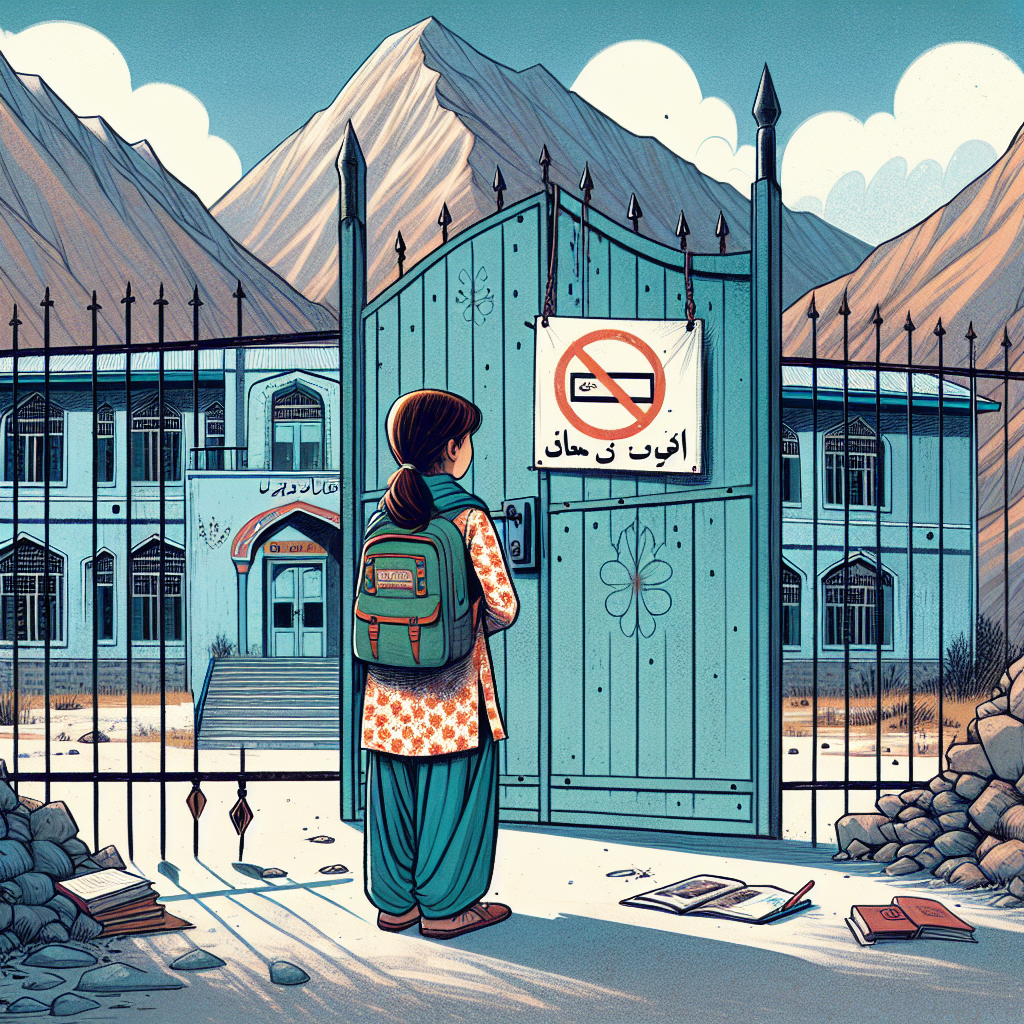UN Report: Taliban’s Justice System Enforces Gender Oppression in Afghanistan
Bennett emphasized that this is not a byproduct of instability, but a deliberate policy of gender persecution designed to suppress any semblance of female autonomy.

A chilling new report presented to the United Nations Human Rights Council has revealed how the Taliban regime in Afghanistan has systematically dismantled legal and institutional protections for women and girls, replacing them with a regime of repression that amounts to crimes against humanity, according to Richard Bennett, the UN Special Rapporteur on the human rights situation in Afghanistan.
In the report, Bennett warns that since the Taliban’s return to power in August 2021, Afghan women and girls have experienced a near-total collapse of access to justice, legal recourse, and support structures. The result is a system that not only fails to protect them but actively enforces misogynistic control and gender apartheid.
“Women and girls face such immense barriers to access justice and protection that the only reasonable conclusion is that the system is designed to enforce and sustain the Taliban’s repressive and misogynistic ideology,” Bennett told the Council.
Key Findings: A Legal System Turned Into a Weapon of Oppression
The report details a harrowing landscape where women’s rights have been systematically stripped, including:
-
Erasure of legal protections once provided under the Afghan Constitution and international treaties.
-
Abolition of institutions, such as the Ministry of Women’s Affairs, and courts that once provided gender-sensitive services.
-
The replacement of civil courts with Taliban-controlled religious courts, where women have virtually no legal standing.
-
Severe limitations on movement, employment, and education for women and girls, enforced through legal and physical coercion.
Bennett emphasized that this is not a byproduct of instability, but a deliberate policy of gender persecution designed to suppress any semblance of female autonomy.
Crimes Against Humanity and International Accountability
The report strongly suggests that Taliban policies constitute crimes against humanity, especially gender persecution. It cites legal definitions under international law that classify systematic denial of fundamental rights based on gender as a crime when part of a broader oppressive system.
Bennett welcomed ongoing investigations by the International Criminal Court (ICC) and initiatives by several UN Member States seeking to hold the Taliban leadership accountable.
“But much more needs to be done,” he stressed. “There is an urgent need for a complementary international accountability mechanism that amplifies Afghan voices and addresses impunity.”
Afghan Women in Rural and Marginalised Communities at Greater Risk
While all Afghan women and girls are impacted, the report underscores that those in remote, rural, and minority communities are disproportionately affected:
-
Hazara women, ethnic minorities, and persons with disabilities face intersecting layers of discrimination.
-
Lack of access to NGOs or humanitarian services in these regions worsens their vulnerability.
-
Many support networks have either collapsed or been forced underground, limiting women’s ability to seek help or resist injustice.
Bennett’s Recommendations: A Multi-Layered Response
Bennett calls for an “all tools” approach — a comprehensive, rights-centered strategy that goes beyond condemnation. Key recommendations include:
-
Establishing a new international accountability mechanism to work in tandem with the ICC and other legal forums.
-
Centering Afghan women’s voices in all peace and diplomatic processes.
-
Empowering Afghan-led civil society, particularly women’s networks working from exile or underground.
-
Investing in economic and social rights, such as healthcare, education, and livelihoods, as a vehicle for resilience and justice.
-
Refusing to normalise relations with the Taliban until meaningful progress on human rights is achieved.
“Justice and protection in Afghanistan must be understood not only as legal accountability but also as the restoration of rights, the recovery of access to essential services, and the creation of conditions in which women, girls, and all Afghans can live with dignity and self-determination,” said Bennett.
International Response and the Road Ahead
The report calls on Member States to respond to the appeals of Afghan women and to not let geopolitical fatigue erode global solidarity. It warns that the current environment of near-total impunity threatens the future of generations of Afghan women and girls and sets a dangerous precedent for the erosion of women’s rights globally.
“Until Afghanistan guarantees the dignity, safety, and rights of women and girls, any attempt to normalise relations with the Taliban would be premature and morally indefensible,” Bennett concluded.










